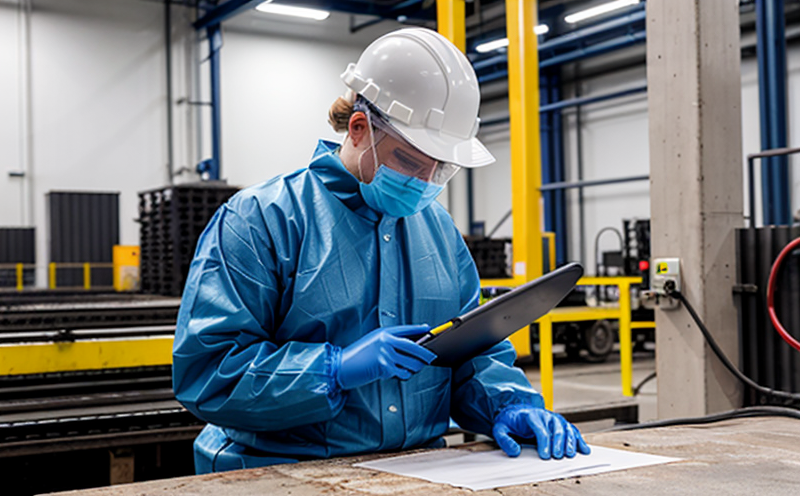ASTM F2413 Foot Protection Certification Testing for Manufacturing
The American Society for Testing and Materials (ASTM) F2413 standard provides comprehensive guidelines for the testing of foot protection footwear. This certification is crucial in ensuring that safety footwear meets stringent criteria to protect workers from various hazards encountered in manufacturing environments.
In industrial manufacturing, occupational health and safety are paramount considerations. Foot injuries can result from direct contact with heavy equipment, sharp objects, or hot surfaces. ASTM F2413-18 covers a wide range of tests designed to evaluate the performance of protective footwear against impact, compression, heat resistance, chemical resistance, and electrical hazards.
The testing process involves multiple stages aimed at simulating real-world conditions faced by workers in manufacturing settings. For instance, the impact test assesses the ability of safety shoes to withstand drops from a specific height and weight, ensuring they do not transmit excessive energy to the wearer's foot. The compression test ensures that footwear can endure loads without compromising on its structural integrity.
Chemical resistance testing is critical in sectors where workers handle hazardous chemicals. This test evaluates whether the footwear provides adequate protection against chemical splashes or prolonged exposure, preventing harmful substances from reaching the skin. Electrical hazard tests ensure that safety shoes are not conductive and do not pose an electrocution risk.
The significance of ASTM F2413 cannot be overstated for quality managers, compliance officers, R&D engineers, and procurement teams in manufacturing facilities. Ensuring compliance with this standard helps minimize the risk of work-related injuries, thereby reducing downtime and associated costs. This certification also plays a vital role in enhancing worker confidence and satisfaction by providing them with reliable safety gear.
- Customer Impact and Satisfaction:
- Reduces the likelihood of workplace accidents and related medical expenses.
- Ensures that workers are equipped with the highest quality protective footwear, thereby improving job satisfaction.
- Achieves compliance with regulatory requirements, which is essential for maintaining a safe work environment.
- Maintains a positive brand image by demonstrating commitment to employee safety and health.
Eurolab Advantages
At Eurolab, we pride ourselves on offering unparalleled expertise in occupational health and safety testing. Our team of professionals ensures that every aspect of ASTM F2413-18 is meticulously adhered to during the certification process.
We have state-of-the-art facilities equipped with the latest instrumentation and technology required for accurate and reliable testing. Our experienced engineers and scientists are well-versed in interpreting results and providing actionable insights based on our findings.
Our commitment to customer satisfaction is reflected in our comprehensive support services, which extend beyond mere certification. We offer guidance on selecting appropriate safety footwear, assistance with design and development of new products, and continuous monitoring post-certification to ensure ongoing compliance.
We also provide detailed reports that clearly outline the results of each test conducted, highlighting areas where improvements can be made if necessary. This transparency fosters trust between us and our clients while ensuring they have all the information needed for informed decision-making.
International Acceptance and Recognition
The ASTM F2413 standard is widely recognized across the globe for its rigorous approach to ensuring worker safety. Many countries have adopted this standard as a benchmark for assessing the quality of protective footwear. Compliance with ASTM F2413 not only enhances your reputation but also facilitates easier export and import processes by meeting international standards.
Our certification is accepted in numerous regions, including Europe, North America, Asia-Pacific, and various other parts of the world. This recognition translates into increased market access and improved relationships with clients and partners globally.





